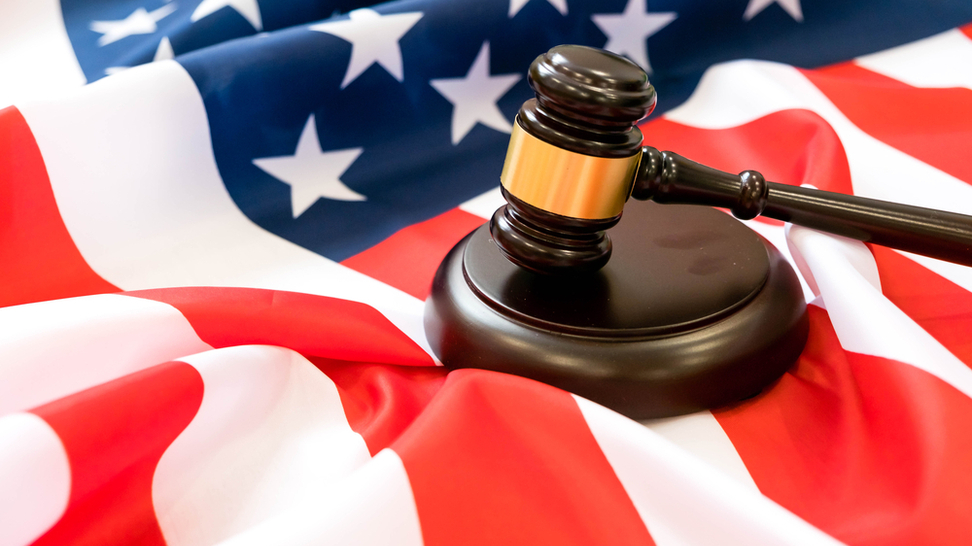Offshore asset protection trusts may get a bad reputation as a tool for committing nefarious activities or a way to commit fraud, but this is simply not the case. Despite what the media and public opinion would have you believe, offshore asset protection trusts are used for legitimate financial purposes, and a Cook Islands Trust is one of the safest and most secure offshore asset protection trusts a person can have because of the way the Cook Islands’ government entities and regulations are designed.
There are several regulatory systems in place that have made the Cook Islands a global leader in financial services and asset protection trusts. Notable enactments by the Cook Islands include the Anti-Money Laundering (AML)/Combating the Financing of Terrorism (CFT) systems, the Financial Supervisory Commission (FSC), the Financial Transaction Reporting Act (FTRA) and the Cook Islands Financial Intelligence Unit (CIFIU).
In relation to the Cook Islands, AML/CFT are a system of checks in place to ensure funds are not acquired through the illegal activities of money laundering or that a trust, for example, is not created to finance terrorism. AML/CFT are international guidelines not exclusive to the Cook Islands but observed by other nations such as the U.S., New Zealand, Singapore, Australia, and other countries.
Established in the Cook Islands in 2004, the FSC’s website states their “function is to facilitate the prevention, detection, investigation, and prosecution of money laundering, the financing of terrorism and other serious offences [sic] in the Cook Islands.” The FSC acts as the “licensing authority for all institutions being banks, insurers (including captives), money-changing and remittance businesses and trustee companies (fsc.gov.ck, 2011)”. This means any trustee who is an individual person or trustee company/firm of a Cook Islands Trust is required to be licensed by the FSC, is supervised by the FSC, and must follow AML/CFT system guidelines.
As an added layer to protect against illegal activity, the Cook Islands has enacted and updated the FTRA over the years. The FTRA is designed as “the legal framework in which reporting institutions must have in place compliance systems to assist with the prevention, detection and prosecution of financial misconduct (Financial Transaction Reporting Act, 2017).” And even further, the Cook Islands established the CIFIU as a complementary layer of security to the FTRA. According to the FSC website, “The functions of CIFIU are to collect, analyze and disseminate financial information and intelligence on suspected money laundering, the financing of terrorist activities and other serious offenses to the appropriate authorities in the Cook Islands and internationally with approved organizations or countries.”
It is because of these strong regulatory measures the Cook Islands has become well-known internationally as the safest place one can establish a trust as well as feel confident their assets are well protected.
Is the Cook Islands Trust the best trust out there?
The regulatory and legal measures established over time in the Cook Islands has catapulted Cook Islands Trusts to one of the top tier offshore asset protection trusts available. Here are a number of reasons as to why the Cook Islands Trust is one of the best trusts out there.
- The Cook Islands judicial system does not accept foreign court judgements. For example, if a plaintiff attempted to receive assets from a Cook Islands Trust trustee that was ordered by a U.S. court, the Cook Islands would not recognize the judgment. The plaintiff would have to litigate or re-litigate the issue at law before a court in the Cook Islands.
- In the Cook Islands a trustee (either a person or trustee company) will have undergone a comprehensive background check to become a licensed and bonded trustee as regulated by the FSC. Knowing your trustee is bonded, your funds are then insured against any wrongful actions by the trustee.
- In no way can the trustee of a Cook Islands Trust benefit from the trust. The trustee’s responsibilities are to follow the terms of the trust, act as instructed by its grantor, and protect the trust in accordance with the laws of the Cook Islands should foreign courts attempt to seize the trust assets.
- Reputable trustee companies in the Cook Islands want to protect their standing as a legitimate business and thus conduct Know Your Customer (KYC) and AML/CFT checks on settlors attempting to establish trusts with them. KYC and AML/CFT checks investigate a settlor’s identity and financial history and background to ensure they did not acquire funds by illegal means such as money laundering. By the trustee company doing its due diligence through KYC and AML/CFT checks, it protects the trustee company’s business and you can rest assured the company is not dealing with criminals as clients. If you interact with a trustee company that does not conduct KYC or AML/CFT checks on you, then you are most likely not working with a reputable company.
- Trustee companies will have insurance policies with well-known insurance companies. To safeguard the settlors, trustee companies will have insurance policies to protect their clients should loss or negligence on the part of the trustee company occur. Trustee companies with insurance policies add another layer of protection to a trust.
Placing your assets within a foreign country may be daunting, but understanding the Cook Islands judicial system and the safety measures Cook Islands trustee companies take to ensure the security of your assets can give you peace of mind when forming a Cook Islands Trust.
The Advantages of a Cook Islands Trust

In addition to the Cook Islands’ favorable judicial system when it comes to trust formation and asset protection, there are other advantages and benefits to setting up a Cook Islands Trust.
Some of the advantages to a Cook Islands Trust include:
- Your assets and investments are protected from banks, creditors, and court orders originating from outside of the Cook Islands.
- A Cook Islands trustee is not bound to U.S. court orders.
- The Cook Islands’ legal system is considered a “defendant-friendly” jurisdiction.
- There is a two-year statute of limitation in the Cook Islands on certain matters and a one-year statute of limitation on other matters.
- Should a plaintiff file a lawsuit to seize your assets in your trust in the Cook Islands, the legal burden lies on the plaintiff to prove beyond a reasonable doubt that the Cook Islands Trust was established with the objective to defraud, which is a very difficult thing to prove.
- The Cook Islands Asset Protection Trust Act allows the settlor/grantor of the trust to also be the beneficiary.
- A Cook Islands Trust can protect assets outside of the Cook Islands.
- With a Cook Islands Trust, you can transact with your assets electronically.
- There is flexibility in the structure of a Cook Islands Trust to fit your specific asset protection needs and investment opportunities.
- Trust deeds do not have to be publicly registered in the Cook Islands.
How to Pick a Cook Islands Trust Trustee
A trustee can be a trusted and professional individual like a lawyer or an accountant. Trustees can also be banks or a professional trustee company or firm. Whomever you decide to be your trustee, they must reside in the Cook Islands.
If you choose to use a trustee company/firm to hold the legal title of the trust’s assets, there are a few signs you can look for to know it is a reputable trust company. First, conduct research on the trust company. Second, understand the trust company’s policies, services, and insurance policy. Reputable trust companies will have insurance policies that protect their clients from loss or negligence. Third, the trust company will conduct KYC and AML/CFT checks on the you ads the settlor before moving forward with conducting business. Trust companies worth their salt will want to make sure the settlor has not acquired their wealth by illegal means like money laundering or drug trafficking. And fourth, check to see that the trust company has been licensed and bonded by the FSC. Licensing from the FSC is a national regulation in the Cook Islands required of trust companies.
How to Properly Establish a Cook Islands Trust
As a word of caution, the common mistake people make when the time comes to establishing a Cook Islands Trust (or any trust) is attempting to do it on their own and using a document preparation company. Document preparation companies prepare anything from name change documents to wills to divorce papers, but document preparation is nothing compared to having the right asset protection attorney working for you. Asset protection lawyers, such as the team at Blake Harris Law, have the trust document and contractual preparation experience and reputable offshore banking and trustee relationships that will make establishing a Cook Islands Trust run smoothly.
That being said, there are a number of steps that need to be taken by the settlor and asset protection attorney to establish a Cook Islands Trust.
First, the parties involved in the structure of the trust must be identified. Those parties include,
- Settlor: This is you, the person who is establishing the Cook Islands Trust in which your assets will go into.
- Trustee/s: There can be one or more trustees and those trustees can be an individual, business entity, attorney, bank, or trustee company. The trustee is the person or entity that owns the legal title to the assets, administers the trust and, should the time come, fights for the legal rights of the trust. Trustees are legally obligated to protect the settlor’s assets on behalf of the trust’s beneficiaries. In the case of a Cook Islands Trust, the trustee must reside in the Cook Islands.
- Trust Protector: The settlor of the trust appoints a trust protector. The trust protector is charged with appointing the trustee/s and overseeing the activities of the trustee to ensure the trustee is acting with the best interest of the settlor. A trust protector should be a reliable and trustworthy individual like a fiduciary company or an attorney.
- Beneficiary: The beneficiary or beneficiaries is the individual or individuals who benefit from the trust. The settlor will appoint a beneficiary including appointing themselves as the beneficiary. The settlor can also appoint family members, other people, and even charities.
Second, there are a number of documents and contracts required to establish a Cook Islands Trust. Documents needed to establish a Cook Islands Trust include:
- Passport or Driver’s License
- Evidence of Funds
- Banking Reference Letter
- Proof of Address
- Trust Deed
- Deed Indemnity
- Letter of Wishes (optional)
- Sworn Affidavit of Solvency or Solvency Certificate
For a list of documents and descriptions, visit the Cook Islands Trust page.
Third, once all of the documents are provided and the contractual trust agreement is signed, the settlor must fund the Cook Islands Trust. Funding the trust means transferring assets into the trust. Whether those assets be liquid assets, investment portfolios, company stocks or shares, intellectual property, real estate, cars, or boats, those funds, deeds, titles, and signed statement letters of ownership will all be transferred to the trust.
Fourth, once the trust is funded the settlor can have peace of mind knowing their assets will be protected should risk arise in the form of creditors or lawsuits.
Who can set up a Cook Islands Trust?

Anyone can set up a Cook Islands Trust. In some cases, people will use a document preparation company or an online service to setup a Cook Islands Trust, but it is not advisable to do so. The best person to set up a Cook Islands Trust is an asset protection attorney who is reliable, knowledgeable, and most importantly has the appropriate relationships with reputable banks and trustee companies.
Our team of attorneys at Blake Harris Law can help set up a Cook Islands Trust structured for your financial benefit. It is not necessary to travel to the Cook Islands to establish a Cook Islands Trust. Our team will schedule meetings via phone or teleconference with potential Cook Islands trustees and bankers with whom we have established partnerships. You then select the partners you feel most comfortable with. Once a trustee and overseas banker are selected, we will walk you through the documents and contractual agreements necessary to establish the trust. From there, we can execute the trust and we can guide you through the funding process.
As you explore different law firms to handle your wealth protection, know that Blake Harris Law is one of the most respected and successful firms in the asset protection field and will meticulously execute your Cook Islands Trust. Our team of attorneys pride ourselves on offering:
- An international network and partnerships with trust companies, trust protectors, and bankers.
- Proprietary ownership of some of the most secure trusts available.
- Time tested and proven asset protection.
- Dedication to helping our clients protect their assets.
- Flexibility and availability to our clients through every step of the trust formation process.
- Competitive pricing.
Once you’re ready to start protecting your assets, contact Blake Harris Law today for a complimentary consultation to see if a Cook Islands Trust is the right trust for your asset protection needs. Contact us through email at info@blakeharrislaw.com.
*References:
https://www.imf.org/external/np/leg/amlcft/eng/
https://www.fsc.gov.ck/index.aspx
https://www.fsc.gov.ck/Documentation/FC/FTRA%202017%20Practice%20Guidelines.pdf


